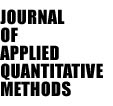 |
|
|||
The Investment in Education and in Continuous Training, at EU-27 Level
Stelian STANCU
Oana Madalina PREDESCU
George Viorel VOINESCU
Anca Domnica LUPU
Keywords
investment, education, professional training, EU-27, labor market, work places, carrier development, human capital development
Abstract
The fundamental role that education has in the development of human fundamental values is to form, nurture and develop spirit. The aim of this paper is to highlight the role of the investment in education and continuous training at EU level. The results presented in the article, are in most part obtained on the basis of specific data series sat EU level, data that have been considered significant. The techniques used, besides those of elementary statistic, are a series of econometric techniques base don autoregressive models, systems with simultaneous equations, time series etc. The major findings drawn refer to the following aspects: the early XX-th century European Union was clearly surpassed by the North American States regarding the development dynamic, productivity and economic competitiveness, the discrepancies being continuously amplified; the reasons for the low European performances in comparison to the North American States are found in obvious inconsistencies between the qualifications offered by the actual education systems and the labor market needs; the low level of participation to education of the working population; in the European countries with less rigid waging systems, an extra education year increases the level of the individual wage with approximately 6,5% to 9%; tertiary education is recognized as being a crucial strategy for stimulating innovation, productivity and growth in a knowledge-based society etc. The basic conclusions drawn, are strongly related with the following aspects: the employment rate grows according to the education level attained, even when it comes to elderly persons; the Europeans with ages between 55 and 64 have big gaps regarding qualification and training, although everyone agrees that the persons with higher education are easier to be absorbed by the labor market, earn more money and benefit from a better social status; even though there are less and less children, the enrollments in education have not generally decreased; the widening of the European Union has not eased, but rather aggravated all these problems because even the recently integrated countries have a negative natural population growth; preschool education helps the children that come from disadvantaged families at socio-economic level to continue their studies and not least the fact that the immigrants are not well represented in education and additional training, presenting an increased rate of withdrawal from studies.

